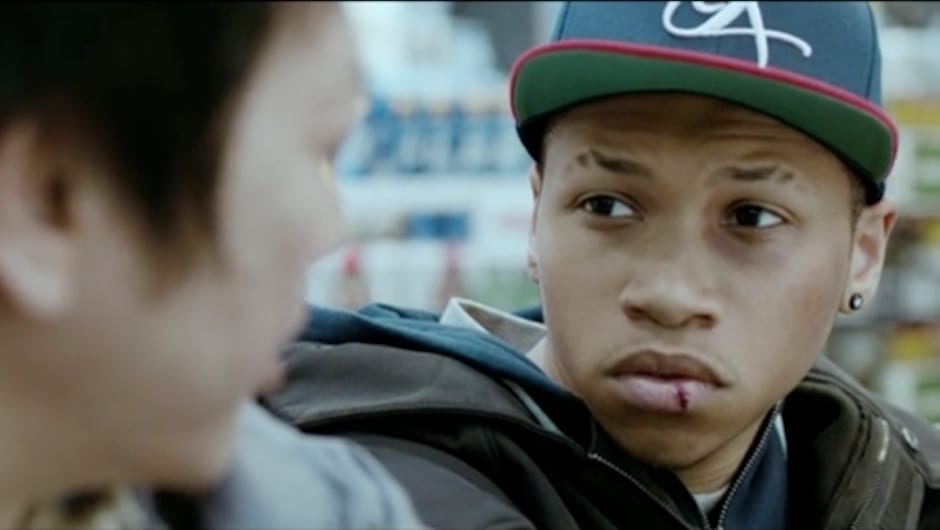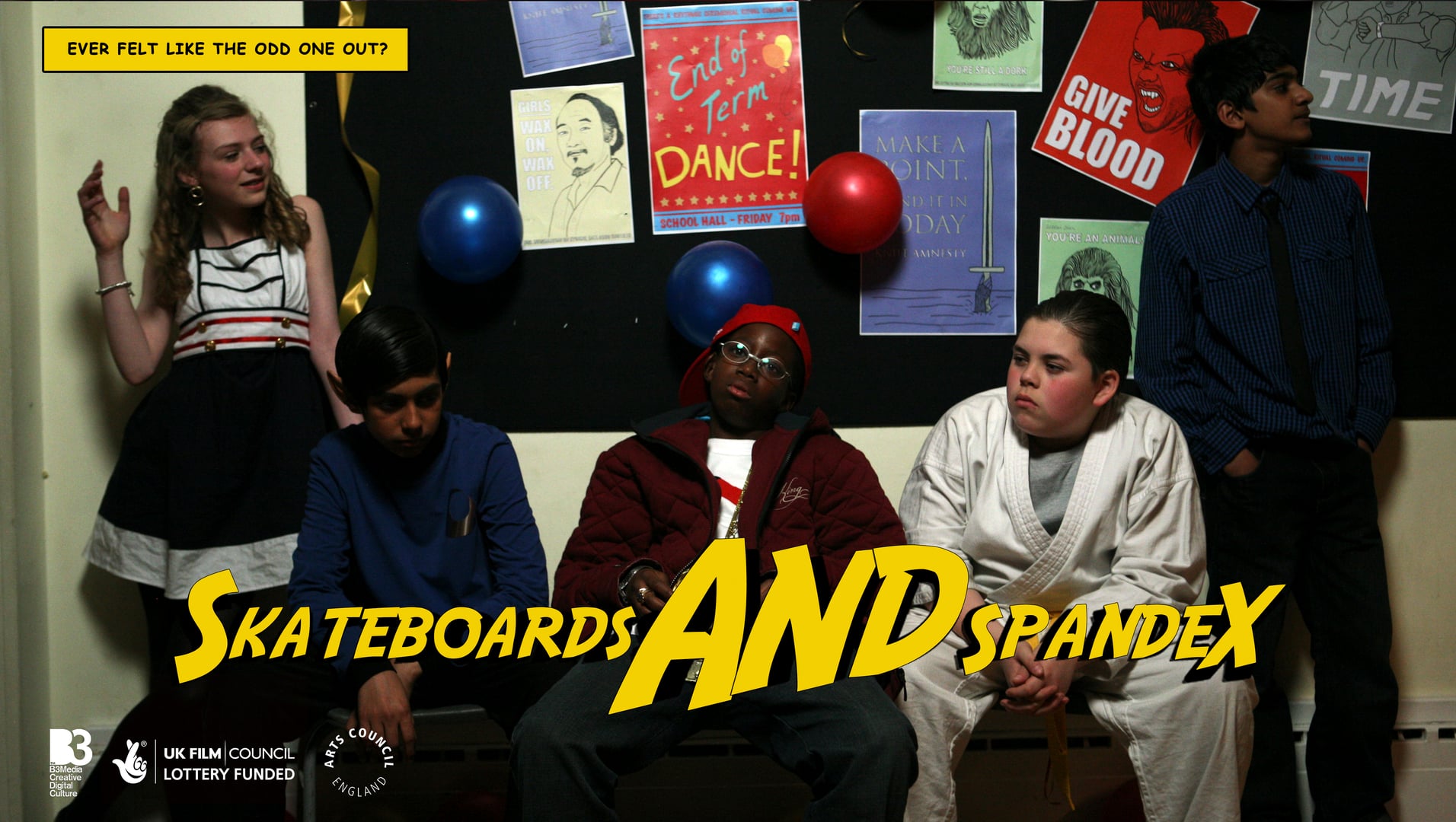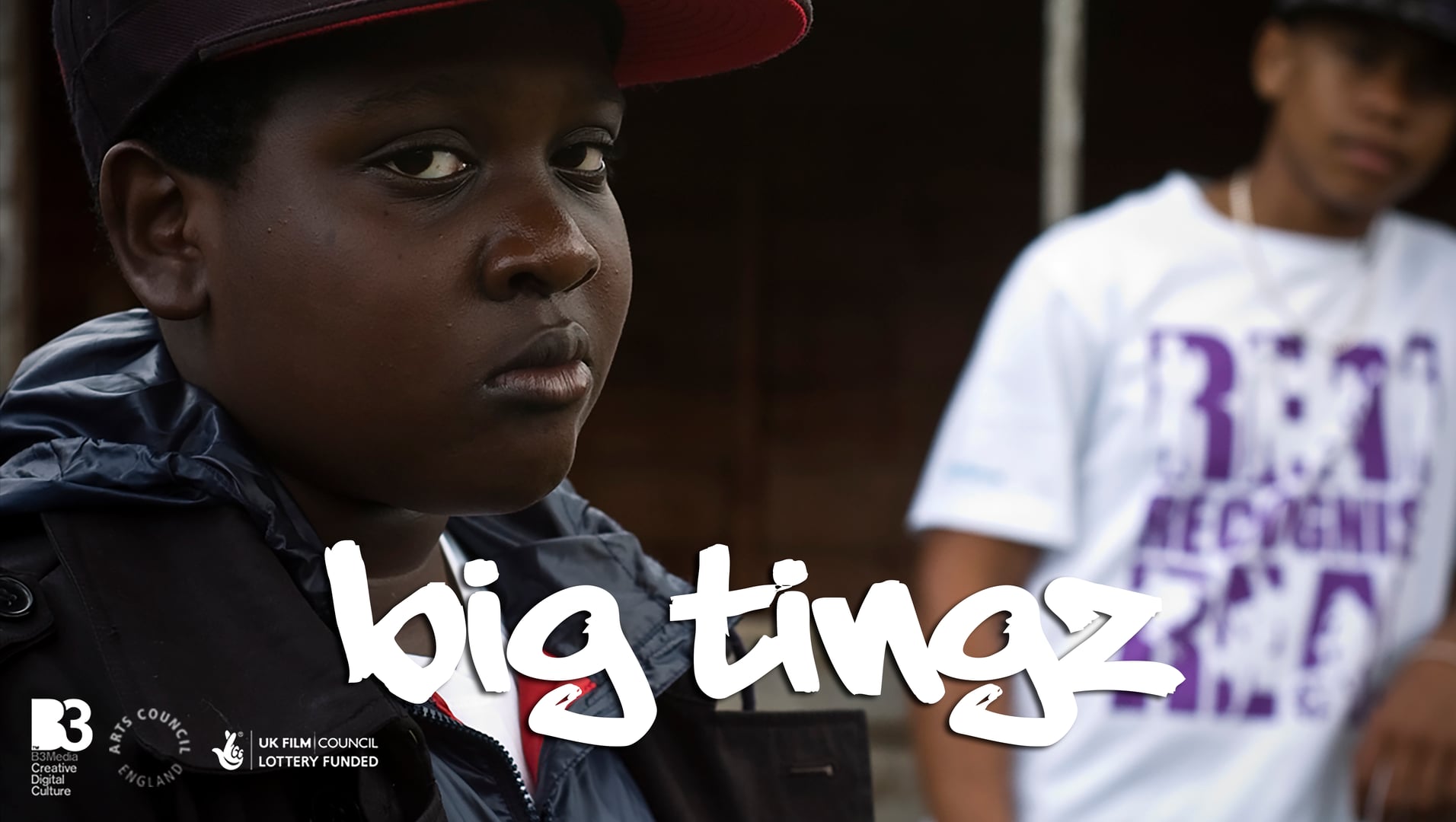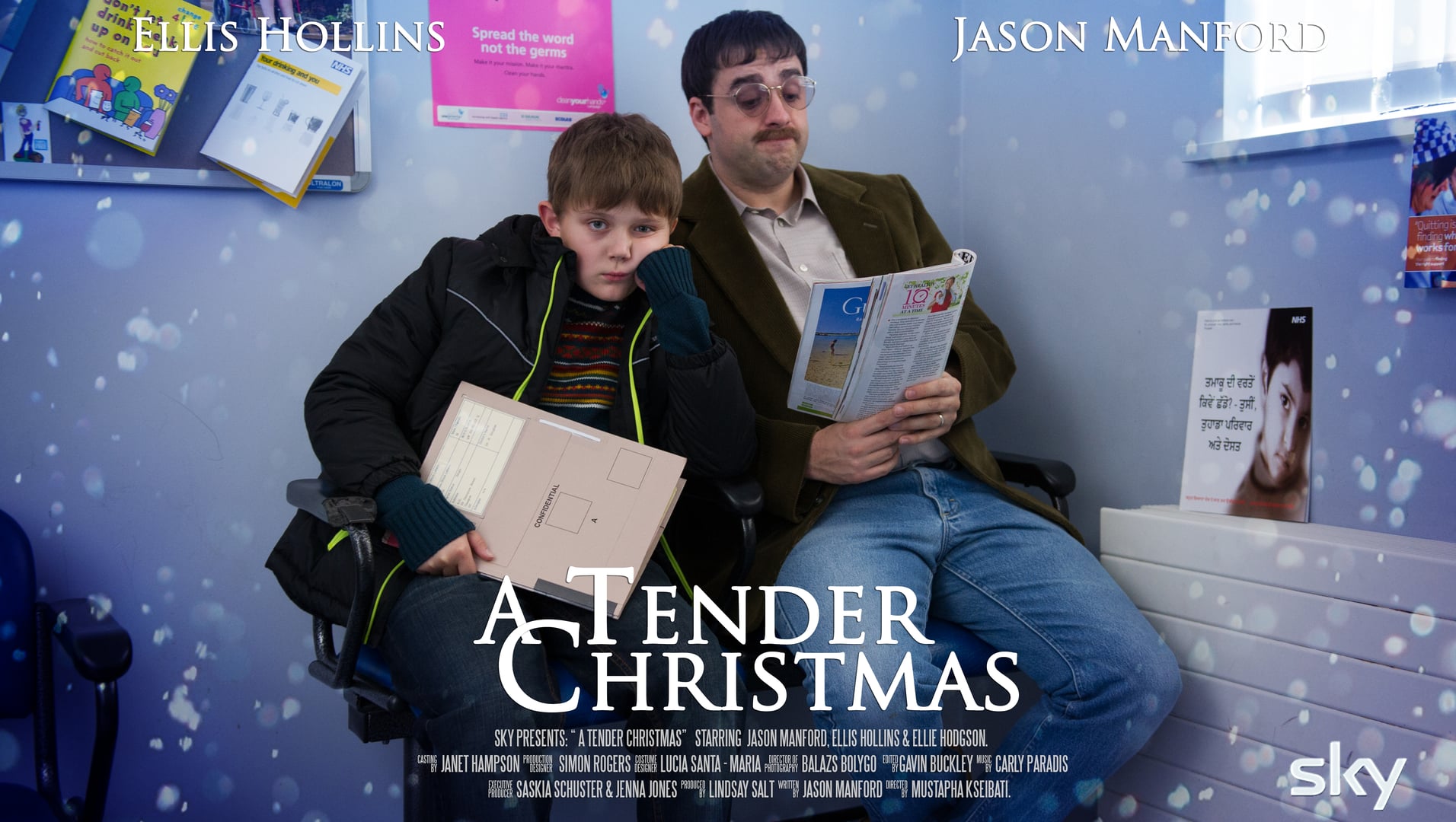Elevator version please of your background and what led you to making films. Describe your childhood please.
I’ve always had an interest in films, television and music since I was a young child growing up in the 1980s. I spent long hours sat in front of the television at home, crossed legged and up close, watching endless amounts of programming.
I was born in Dubai and spent most my life in London, although I spent three years of my childhood chasing frill-neck and blue-tongue lizards in Australia. My childhood was spent moving around a lot due to my father’s job as a journalist. Because of this, making friends was difficult. Often I would find myself on the receiving end of bullies, so I learned how to be funny in order to make friends. At school I was more pre-occupied with being a clown than my studies.
Because I suffered from bad asthma, I used to stay home a lot and remember watching everything from The Monkeys, Walton’s, Lost in Space, Bewitched, Land of the Giants, Gentle Ben, VH1 etc.. But it wasn’t until the Delorean rolled out of the long truck in Twin Pines Mall in Back To The Future that I fell in love with the magic of cinema.
I studied multi media production at university and soon found myself running at Partizan. Whilst there I was offered an internship at MTV where I produced, directed and edited various bits.
In 2008 I entered a script I wrote called Big Tingz into a talent scheme called Blank Slate run by B3 Media and supported by the UK Film Council and got selected to make it. The film was about two kids who learn that being “gangsta” wasn’t as fun as its made out to be. Soon after I made Skateboards and Spandex, a comedy about bullying for kids capturing the magic of 80’s kids films (Goonies) with the UK Film Council again. B3 Media and the BBC approached me to direct Painkiller, a 12 min black comedy, which made me a Screen International Star of Tomorrow in 2012. In 2012 I also directed a Sky Little Cracker in 3D starring and written by Jason Manford, which received the 2nd highest ratings of the season. It revisits a 12-year-old Jason in hospital for a circumcision in the 90s.
Did you always set out to write and direct comedy or did you explore other genres before finding your milieu? How, for instance, did you go about writing your first film Big Tingz?
The first draft of Big Tingz was a drama called Knife, about a group of kids who do a drug robbery that goes wrong. A director called Tom Shankland read it whilst I was doing a stint editing at Vertigo Films. There was a really tense scene in a car at night, where the kids were driving to the robbery but then one of the kids let out a fart. When Tom read that he laughed so hard and suggested I re-write it as a comedy, as he felt there was something fresh in that he hadn’t seen before. And that set me on my path of comedy. But I’ve always loved comedy having grown up watching Bill Murray, John Candy, Dan Ackroyd, Eddie Murphy, Chevy Chase, Peter Sellers and great shows like Happy Days, The Golden Girls, Cheers, Roseanne, Family Ties, Only Fools and Horses etc.
Just when you think you know where the story is heading you subvert the obvious. Please tell us how your script writing and film making skills evolved – are you self-taught or film schooled? Do you have an organised creative process?
Having had public support, I have been very fortunate to work with good script developers as part of various schemes. They have helped me tell the best possible version of the stories I want to tell. A lot of this is down to them helping me recognise the theme of my story and helping me strengthen that. I am very much a student of the school of making ofs. Thank god for DVD extras! I revisit the making of Alien, Aliens, Terminator 2 and Jaws once a year and learn something new with every watch. I’m currently reading The Making of Star Wars (the original trilogy). George Lucas is a hero.
What’s behind your understanding of brotherly relationships and your empathy with the underdog?
The films I love have an element of hope in them and that’s something I believe in. American films generally have a brighter more aspirational and less cynical view of the world and I connect with that. Whether it’s a story about integrity (Scent of a Woman) or courage (The NeverEnding Story), these films tell important rites of passage stories on morality, which is important to me because they have positive meaningful messages for young audiences.
When it comes to underdogs, I’m passionate about stories where characters have to overcome adversity to become heroes. It’s mythic on a subconscious level. I’m deeply fascinated in the work of Carl Jung and Joseph Campbell.
The performances in your films usually involve a young cast – where do you find the actors and what’s your method for directing them – do you rehearse a lot?
I love working with young people. Usually there isn’t any ego or insecurity with kids, which makes the process more fun and focused. On average I see around 50-100 kids per film and mix and match them on tape to find chemistry (if it’s an ensemble piece). I spend a day getting to know my actors and for them to get to know each other. I film us all dancing to 80s pop hits and do stuff like piggybacks in order to relax and trust each other. Then I spend a half-day or more doing a read through where we discuss how the characters feel at different moments in the film. This is a discussion, which helps the cast understand the characters in the story better. That’s followed by rehearsals. On my latest film, my lead kid Jayden Revri and myself spent hours martial art sparring in order for him to learn to trust his instincts. I also filmed the kids improvising a war scene as soldiers trapped behind enemy lines, to get them to work as a team. I also made them act as animals, in order for them to stop acting like their respective animal and to become the animal instead.
Do the films evolve on the shoot or in the edit? Do you storyboard the scripts in detail or is there room to incorporate the unexpected?
The process of filmmaking is definitely one of evolution from script to finished piece. The script gets refined with each draft, and the same goes for performances and the edit. Not everything you shoot works and I used to think I was the only one until I watched the making of American Beauty, where Sam Mendes talks about struggling finding the tone in the opening. He originally had Kevin Spacey flying over the characters neighborhood he lived in, but dropped it in the editing process because it didn’t work. He went on to win an Oscar for that film. Problem solving plays a large part of the filmmaking process. Storyboarding action is essential, but I think it’s always wise to be open to the unexpected or you’re limiting yourself and potentially missing out on gold.
Are you happiest working with a regular crew?
When I find people I get on with who are talented, I like to hold on to them, but that doesn’t mean I shut off from working with new people. Different people have different strengths and that may mean they are more suited to a project over another.
Mohammed is your latest film due to be first screened at the BFI London film festival next week. What were the main challenges of the production and how did you resolve them?
Mohammed is an 18 minute Comedy Drama starring Kayvan Novak (Fonejacker, Four Lions, Cuban Fury) and Sophie Thompson (Four Weddings and a Funeral, Harry Potter and winner of this years Celebrity Master Chef).
The tagline reads “12-year-old Adam finds his 31-year old, superhero obsessed brother with learning difficulties a nightmare – until he sees a chance to use him to gain friends.” It will be premiering at the London Film Festival this October. I was selected through the BFI Shorts initiative in 2012 to make it, which selected 17 up and coming feature filmmakers making the transition to features. I was lucky enough to get Marvel, Paramount, Magic FM, the BBC and some really cool 80’s hits to include in the film including a cameo from Rick Astley. It’s a film filled with heart, comedy and action. If you like fun films filled with heart that end on an up, you’ll love it.
What are the key lessons you’ve learnt about film making?
To work with people who are experienced, have the same vision for the film / project I’m working on and who want to support me. I’ve also learnt good producers protect a director from not only others but from themselves.
You’ve recently signed to Another Film Co for commercials representation. What would be your dream commercial job?
I love Romain Garvras’ ‘Charge’ for Samsung. It’s brilliantly epic. The action is off the hook! I also love Dougal Wilson’s ‘Playing With My Friends’ for IKEA. It’s so fun, colourful and technically executed to perfection. His ‘Pony’ for Three is also genius!
With that said, a dream commercial for me would include kids, comedy and action. All the things I love.
Anything else you’d like to share?
Back To The Future is the greatest film of all time.

















